he year 2024 has seen big shifts. They are in the ranks of the world’s billionaires. This year’s list highlights the huge financial influence of individuals. They originate in the technology and luxury goods sectors. Here’s a detailed look at the corrected sentence:
1. Elon Musk

Elon Musk, the CEO of Tesla and SpaceX, tops the list with a net cost of about $221.2 billion. Musk’s electric motorcars and play exploration explorations have rapidly expanded his wealth. His influence extends beyond these industries. He’s got investments in the AI and renewable energy sectors.
Musk’s education took him to the University of Pennsylvania. He earned degrees in physics and economics. He registered for the Stanford University Ph.D. program for a short time. But he left to start businesses.
PayPal achieved instant popularity
Musk’s first big venture was Zip2. It was a city guide software for newspapers. He co-created it with his brother Kimball. Compaq purchased Zip2 for $300 million in 1999. Musk then co-launched X.com, an online price party. It developed into PayPal behind entering. PayPal’s victory was shown by its asset by eBay in 2002 for $1.5 billion in by-by-products, netting Musk $165 million.
Tesla is revolutionizing the automotive industry
In 2004, Musk joined Tesla Motors, based on Martin Eberhard and Marc Tarpenning. Musk carried the chairmanship. After evolving as CEO, he led Tesla to evolve into the world’s most useful automaker. Its electric motorcars have redefined the car’s ambition. Tesla’s vehicles, including the Roadster and Model series, boast speed, safety, and ecologically friendly qualities.
Musk’s vision extends beyond cars. Tesla accepted SolarCity in 2016. It blends solar energy answers with energy-hold effects like the Powerwall. The move was a facet of Musk’s broader mission. His dream is to speed up the switch to tolerable energy. That’s according to SeaWorld magazine and Business Insider.
Boring Company and Hyperloop
Musk’s transportation creations aren’t limited to roads and areas. In 2016, he founded The Boring Company. It develops underground tunnels for efficient urban transit. The Las Vegas Convention Center Loop is a testament to Musk’s vision. It’s been working since 2021. It shows his vision for cutting traffic.
Musk also proposed the Hyperloop concept in 2013. It expects a high-speed transit method using pressurized pods in low-pressure pipes. Musk hasn’t pursued the Hyperloop. But, many companies are working to make this futuristic transport real.
Neuralink and AI Ventures
Musk has an interest in advancing humans. This led to his founding of Neuralink in 2016. The party aims to create brain-machine interfaces. They will use them to improve human thinking and address brain conditions. Additionally, Musk co-founded OpenAI. Its purpose is to ensure that AI helps society and reduces its chances.
Challenges and Controversies
Musk’s travel has only lived with challenges. His ambitious goals and bold statements often attract skepticism. Musk uses social media, especially Twitter. This has led to legal issues and market swings. Moreover, the demanding work culture at his companies has faced criticism.
Musk’s ability to innovate and push boundaries remains undeterred despite these challenges. He focuses on solving tough global problems. His resilience in adversity is key to his success.
2. Jeff Bezos

Jeff Bezos, Amazon’s founder and retired CEO, tags second with a net cost of $214.5 billion. Bezos strolled down from his part at Amazon. But he still benefits from his remaining stake in the company. He invests in space exploration through Blue Origin and other ventures. This adds to his wealth. That’s according to SeaWorld magazine and Business Insider.
In 2024, Jeff Bezos will become the richest guy in the world, too. He is calculated to have a net cost of $214.5 billion. Bezos founded Amazon. He’s been his CEO. He transformed e-commerce, cloud computing, and space exploration. His business skills were key. His new strategies and relentless pursuit of growth made him a top figure. He is in the global economy.
Early Life and Career Beginnings
Jeffrey Preston Bezos was held on January 12, 1964, in Albuquerque, New Mexico. From a before age, Bezos revealed a keen interest in science and technology. He graduated at the top of his class from Princeton University in 1986. He earned degrees in electrical engineering and computer science. Before founding Amazon, Bezos worked on Wall Street in different roles. He performed at the border fund D. E. Shaw & Co. There, he became its most youthful vice president.
Founding Amazon: From an online bookstore to an e-commerce giant
In 1994, Bezos founded Amazon.com as an online bookstore from his garage in Seattle. His image expands past books, aiming to change Amazon into an “Everything Store.” The business fueled its early development by concentrating on clients. They also used new technology and a large range of products. By the late 1990s, Amazon had grown into many types. These had electronics, clothing, and home goods.
Amazon’s IPO in 1997 was a big milestone. Its growth since then has been very fast. Today, Amazon is the biggest online retailer. It sells Amazon Prime, Amazon Web Services (AWS), and Amazon Fresh. AWS launched in 2006. Cloud computing has changed. A big source of revenue for the company. The company also owns SeaWorld and Business Insider.
Amazon Web Services (AWS)
AWS is one of Jeff Bezos’s most important assistance to the tech initiative. Delivering scalable and cost-effective cloud computing benefits, AWS supports companies of all sizes. It offers computing power, storage, and databases. These have become essential for many global enterprises. AWS’s success has been key to Amazon’s financial growth. Amazon’s profits have surged.
Blue Origin: Reaching for the Stars
Bezos has achieved much at Amazon. He has also made big strides in space exploration. In 2000, he founded Blue Origin. It’s a personal aerospace engineer and sub-orbital spaceflight business. Blue Origin’s mission is to lower the cost of space travel and enable human life to expand beyond Earth.
The business New Shepard missile has had many flourishing tasks. Its new Glenn rocket is ready to contend with SpaceX’s Falcon Heavy. Blue Origin is also operating on the Blue Moon lunar lander. It desires to help NASA’s Artemis schedule to replace humans on the Moon.
Philanthropy and Future Vision
Despite his immense wealth, Bezos has faced criticism. Other billionaires compare his giving to theirs. Yet he has made significant donations in recent years. In 2018, he launched the Bezos Day One Fund. He earmarked $2 billion to help lost families. He also aims to build a network of non-profit prekindergartens in low-income communities.
In 2020, Bezos pledged $10 billion to fight climate change. He did this through the Bezos Earth Fund. The fund supports scientists, activists, and groups working on environmental issues. He also gives a lot to healthcare, education, and space exploration. This is according to SeaWorld and it’s Business Insider.
Challenges and Controversies
Bezos’s journey has been challenging and contentious. People have scrutinized Amazon’s labor practices. This includes the conditions in its warehouses and its treatment of employees. Critics have also targeted the company for dominating the market. They say it’s damaging little businesses.
Bezos’s private life has also been in the limelight. In 2019, he told his divorce from MacKenzie Scott after 25 years of marriage. Despite the private and experienced challenges, Bezos can still innovate and show well. His power stays faithful.
The future of Amazon and Blue Origin
After leaving as CEO of Amazon in 2021, Bezos still influences the company. He is its executive chairman. He focuses on long-term growth and innovation. This ensures that Amazon remains a dominant force in e-commerce and technology. Under him, Amazon has entered new markets. This includes healthcare and AI.
Blue Origin’s future looks promising. They’ve got ambitious plans for space tourism and travel between planets. Bezos’s vision is of millions of people living and working in space. It drives the company’s initiatives. The upcoming New Glenn rocket and Blue Moon lunar lander are key to these goals. That’s according to SeaWorld magazine and Business Insider.
3. Bernard Arnault & Family
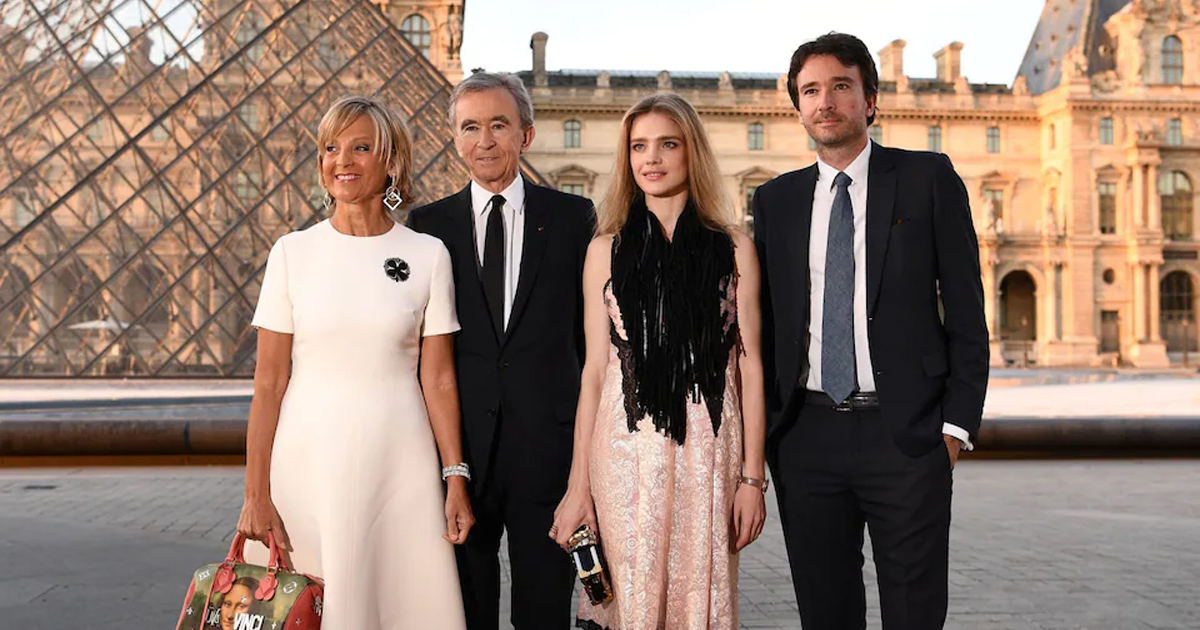
Bernard Arnault, the CEO, and the president of LVMH, has a net cost of $202 billion. LVMH is the biggest amenity goods business in the world. It contains famous brands such as Louis Vuitton, Christian Dior, and Tiffany & Co. Arnault has bought outfits and joined new markets. These moves have improved his finances.
In 2024, Bernard Arnault and his family reached the peak of global finances. They’ve collected an assessed net worth of $202 billion. Arnault is the director and CEO of LVMH (Moët Hennessy Louis Vuitton). He has built a kingdom in the luxury goods ambition. It includes some of the world’s most prestigious labels. His travel to become the world’s money man is a testament to his strategic image. He’s got trade skills and a tenacious pursuit of excellence.
Early Life and Career Beginnings
Bernard Jean Étienne Arnault was born on March 5, 1949, in Roubaix, France. He graduated from the École Polytechnique, France’s top engineering school, in 1971. Arnault started his profession performing for his father’s construction business, Ferret-Saving. He took over in 1978. He turned society’s focus to actual inheritance. Furthermore, he renamed it Férinel Inc. Then, he started his journey to evolve its titan of luxury interests.
The Birth of a Luxury Empire
Arnault entered the extra need in 1984. He acquired the near-bankrupt textile company, Bosses Saint-Free. The acquisition included the iconic fashion house, Christian Dior. The acquisition also included the department store Le Bon Marché. Arnault sees potential in the luxury sector. So, he sold most of Boussac’s assets, keeping only the Dior brand and Le Bon Marché.
In 1987, Arnault played a key part in creating LVMH.LVMH received it. Arnault is LVMH’s chairman and CEO. He pursued an aggressive investment strategy. The group has added famous labels to its portfolio. These trademarks include Fendi, Céline, Bulgari, and Sephora.
Art Collector
In addition to his business achievements, Arnault is a passionate art collector. He has gathered a vast collection of stylish art. It contains works by Picasso, Warhol, and Hirst. Arnault dedicates himself to the skills. His dedication goes beyond personal collection. He founded the Louis Vuitton Foundation in 2006. It’s a modern art gallery and cultural hub in Paris. The renowned designer Frank Gehry designed the gallery.
Challenges and Controversies
Arnault has faced scrutiny over labor practices in LVMH’s supply chain. People have also criticized him for it’s tax avoidance. Despite these challenges, Arnault can navigate a complex business. His commitment to luxury excellence is unwavering. It has made his reputation strong. This was in SeaWorld and Business Insider.
LVMH Future
As Arnault continues to lead LVMH, its future looks promising. Experts expect the luxury goods market to grow. Rising wealth in emerging markets will drive it. Also, by increasing demand for high-quality, exclusive products. LVMH has made strategic acquisitions. The recent sale of Tiffany & Co. is an example. These moves position the group to continue dominating the luxury sector.
Arnault’s vision for LVMH goes beyond mere financial success. He aims to keep and improve the heritage of each brand. He also wants to drive innovation and sustainability. Under his leadership, LVMH is investing in sustainable practices. They choose sustainable resources and package goods with gentle handling. They aim to show that luxury and duty go together. That’s according to SeaWorld magazine and Business Insider.
4. Mark Zuckerberg

Mark Zuckerberg has a net worth of $167 billion. He co-established and conducted Meta, previously known on Facebook. He rates fourth. The success of Facebook, Instagram, and WhatsApp has made him rich. Innovations in virtual and augmented reality helped. That’s according to Forbes Australia and Business Insider.
Early Life and Education
Mark Elliot Zuckerberg, rose in a well-educated home. He displayed an early interest in computers and programming. By high school, Zuckerberg had created several schedules. One was a music-playing called Synapse.
Zuckerberg enrolled at Harvard University in 2002. He learned computer science and psychology there. It was at Harvard that he invented “The Facebook.” It was a social site for university students. The media gained general approval shortly after. It expanded beyond Harvard to different Ivy League schools. Then, it applied to colleges worldwide.
Founding Facebook
In 2004, Zuckerberg and his college roommates established Facebook from their dormitory room. The site allows users to build profiles, upload photos, and connect with friends. Facebook’s quick growth enticed investors. This led to its move to Silicon Valley. In 2005, Facebook got its first big acquisition of $12.7 million from Accel Partners. This lets the business grow its user base and enhance its infrastructure.
Facebook’s success stems from its groundbreaking parts and reflexive design. News Feed came out in 2006. It transformed how users finished content. It made it more comfortable to stay revised on friends’ actions and interests. Facebook grew. It added new features like Pages, Groups, and the like button. These features increase user engagement and interaction.
Acquisitions and Expansions
Under Zuckerberg’s leadership, Meta has made many key acquisitions. It’s been able to improve its tech and grow its power. Notable acquisitions include Instagram in 2012. It also includes WhatsApp and Oculus VR for $2014. These acquisitions have expanded Meta’s products. It also grew its users and revenues.
Instagram and WhatsApp, in particular, have become integral parts of Meta’s ecosystem. Instagram focuses on pictures. WhatsApp focuses on messaging. These complement Facebook’s social network.
Challenges and Controversies
Zuckerberg’s profession has not been without challenges and discussions. People have criticized Meta for its data practices. They have targeted solitude, misinformation, and its effect on health and society. The Cambridge Analytica scandal took home in 2018. Without their consent, companies harvested data from millions of Facebook users. It’s flared global anger and led to more regulatory scrutiny. Meta keeps investing in technology and initiatives. They’ve aimed to build a safer and more responsible digital ecosystem.
The Future of Meta and the Metaverse
As Zuckerberg continues to lead Meta, its future looks promising. Metaverse products are a bold new boundary in digital interchange. It can revolutionize how people work, play, and connect. Meta has invested in AR and VR technologies. It also has a healthy portfolio of social venues. These things give it a head start in the emerging metaverse space.
Zuckerberg’s image of the metaverse contains building immersive adventures. They will go beyond physical boundaries, letting people interact in new ways. This vision matches Meta’s mission. Our mission is to bring the world closer together. The goal is to create a society and relationships. This is in the digital age.
5. Larry Ellison
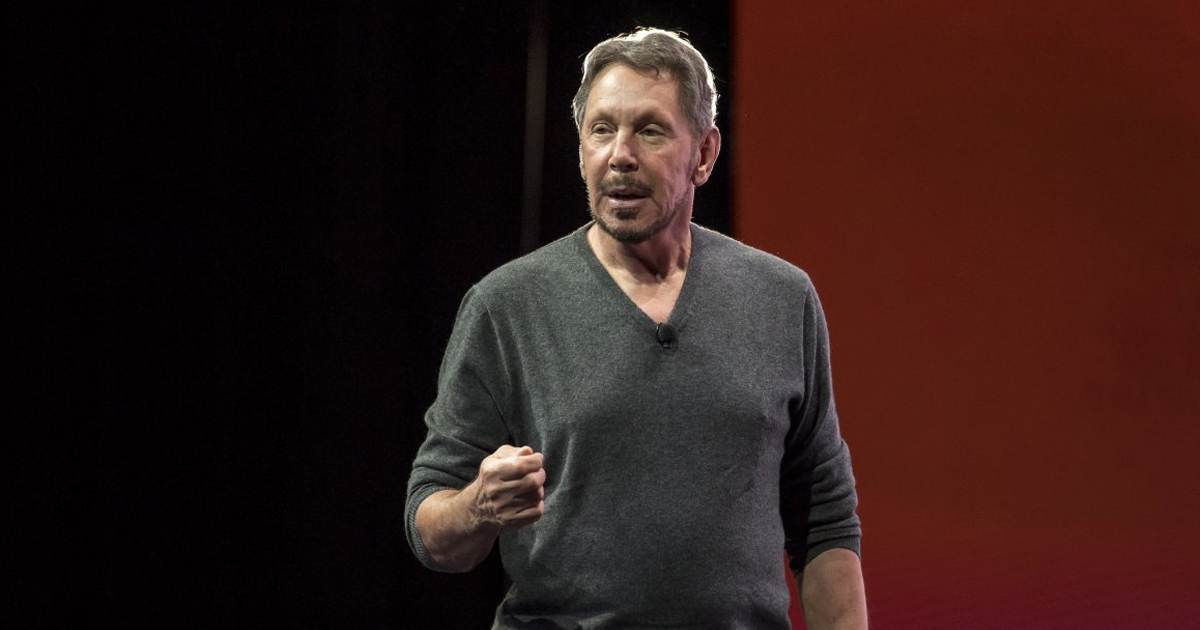
Larry Ellison, the co-founder of Oracle, holds the fifth position with a net worth of $149 billion. Ellison continues to play a key role at Oracle. He is its chairman and chief technology officer. His investments in companies like it also added to his fortunes. That’s according to SeaWorld magazine and Business Insider.
Founding Oracle
In 1977, Ellison founded SDL with Bob Miner and Ed Oates. It later became Oracle Corporation. A research paper inspired Ellison. It was on relational database management systems (RDBMS) and written by Edgar F. Code. He envisioned creating a commercial product based on this new technology. The result was Oracle. It was a revolutionary database software. It allows efficient data storage, retrieval, and management.
Oracle achieved immediate success with the 1979 release of its database. It was the first SQL-based RDBMS for sale. The company experienced rapid expansion. Its new technology and Ellison’s aggressive strategies drove it.
The Cloud Computing Revolution
Recently, Oracle has made big strides in cloud computing. It competes with giants. They include Amazon Web Services (AWS), Microsoft Azure, and Google Cloud. Ellison’s focus is on cloud technology. It reflects his understanding of its power. It can transform business and drive growth. OCI offers many cloud services. They include three types. Infrastructure as a service (IaaS), platform as a service (PaaS), and software as a service (SaaS). These details come from SeaWorld magazine and Business Insider.
Ellison has emphasized security, performance, and cost efficiency. This focus has helped Oracle gain traction in the competitive cloud market. The company’s cloud strategy includes innovative products. For example, there is an Autonomous Database. It uses machine learning to automate database management and boost performance.
6. Larry Page
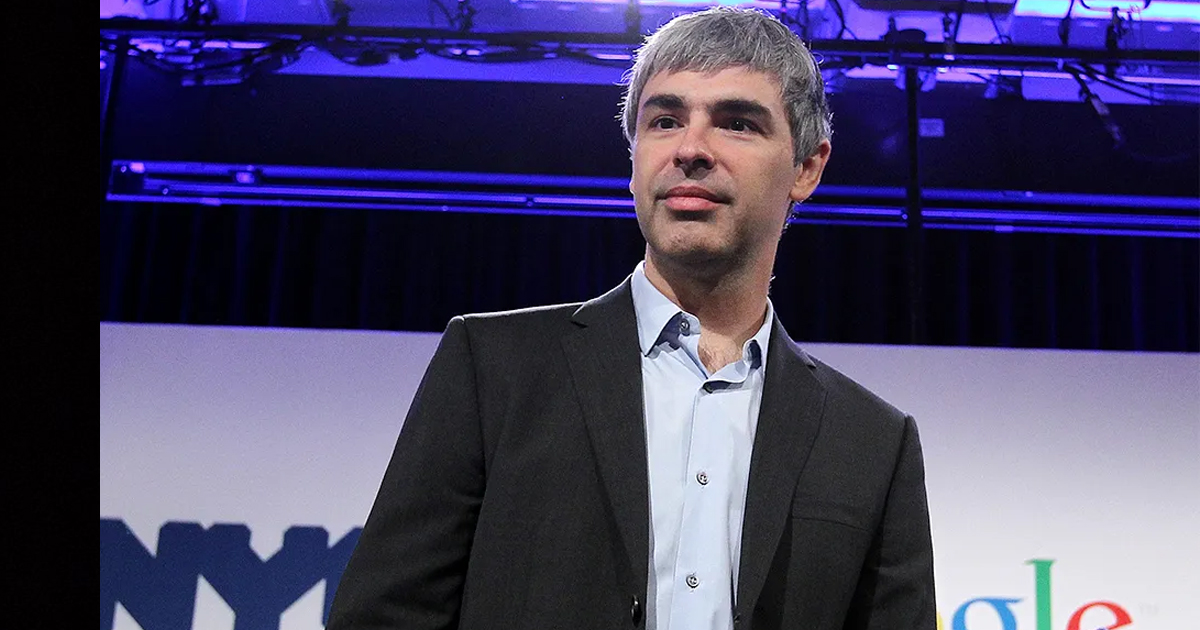
Larry Page continues to invest in technology and innovative startups. They include those in the “Flying Car” industry. These investments maintain their position among the wealthiest.
Larry Page is the co-founder of Google. In an outstanding turn of affairs, he’s risen to the pinnacle of prosperity. He is now the moneyed man in the world. This remarkable attainment images his visionary strategy for technology. He’s pursued creation without destroying.
Early Life and Google’s Founding: Larry Page was born on March 26, 1973, in East Lansing, Michigan. Page met Sergey Brin at Stanford University. Together, they launched it in 1998. They aimed to organize the world’s information. They wanted it to be accessible and useful to everyone.
Google surged under Page’s leadership. It changed from a search engine into a tech giant. It diversified into areas like advertising, cloud computing, and artificial intelligence. The introduction of new products was revolutionary. They included Google Search, Google Maps, Gmail, and Android. These products have made it dominate the tech industry.
Innovations and Ventures: Beyond Google, Page invested in many futuristic projects. They’ve paid off. He invested in ventures, yielding a huge financial surge. These include Planetary Resources, an asteroid mining company, and investments in new technologies. He has also made notable efforts to promote sustainable energy. He’s done this through investments in renewable energy projects.
People know Larry Page for his philanthropy. He is very rich. He’s pledged large amounts to various causes. Larry focused on education, renewable energy, and healthcare. He’s also aiming to tackle the world’s biggest problems. He does this through initiatives like the Page Family Foundation.
Conclusion: Larry Page is a Stanford PhD student. He went from that to being the richest man in the world. It shows his genius and entrepreneurial spirit. He foresees tech trends and invests in innovations. This hasn’t only made him rich but also helped tech and society.
7. Sergey Brin
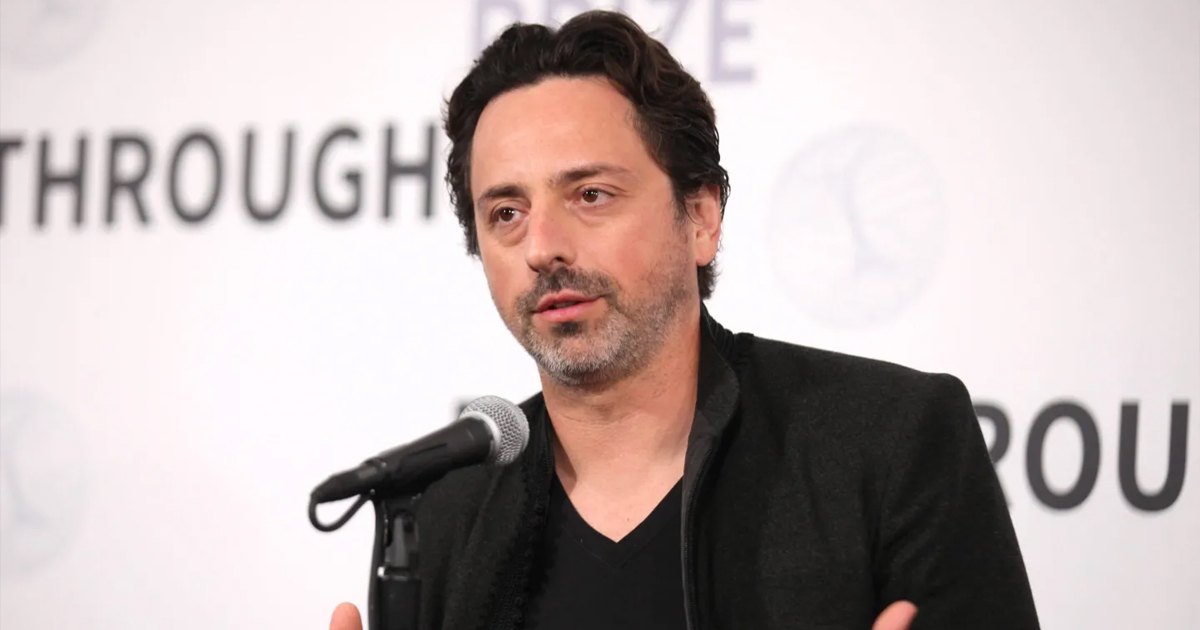
Sergey Brin, another co-founder of Google, ranks seventh with a net worth of $137 billion. It’s a key figure in Alphabet, its parent company.
Founding Google: In 1998, Brin and Page launched Google from a garage in Menlo Park, California. Google’s search engine became popular fast. This was due to its innovative algorithm. It delivers more relevant search results than existing technologies.
Google has expanded beyond search under Brin’s leadership. I’ve ventured into advertising with Google Ads. It also entered mobile operating systems with Android. I entered the hardware with the Google Pixel. Google made a calculated acquisition of YouTube and Android. Their market influence has helped Google stay a tech leader. Brin’s focus on innovation has helped Google maintain its status as a tech leader.
Brin played a key role in this change. It lets Alphabet invest in diverse, high-risk, high-reward projects. This boosted his wealth. It focuses on education, Parkinson’s disease research, and clean energy. Brin also invested in futuristic projects. These include space exploration and renewable energy.
8. Warren Buffett

Known as the “Oracle of Omaha,” Warren Buffett has a net worth of $134 billion. His assets yield a mixed portfolio with substantial returns. This has solidified his place among the top ten, according to Business Insider. He’s the mythical investor and CEO of Berkshire Hathaway. People reach him the “Oracle of Omaha.” Investors know Buffett for his economic espionage and long-term acquisition plans.
Building Berkshire Hathaway was a big turning point for Buffett. In the 1960s, they called it Berkshire Hathaway. He turned it into a diversified holding company. It is supported by different ambitions, including insurance, utilities, railroads, and consumer goods. Berkshire has made notable investments. They include GEICO and BNSF Railway.
Buffett’s investment philosophy centers on value investing. It means buying undervalued companies with strong fundamentals. He then holds them for the long term. His famous principles include investing in businesses he understands. He focuses on good management and a margin of safety.
Warren Buffett’s wealth stems from a prevalent stake in Berkshire Hathaway. Despite his extensive philanthropic commitments, his net value has persisted to grow. In 2024, its wealth rushed. This was due to strong arrangements from Berkshire Hathaway’s investments and strategic acquisitions. The surge pushed him to the top of the international wealth rankings.
9. Bill Gates

Bill Gates co-founded Microsoft. He is a leading philanthropist. He has a net value of $129 billion. Although he has declined his involvement in Microsoft, Gates has many investments. He also has many charitable endeavors. These are through the Bill & Melinda Gates Foundation. They add to his wealth.
Bill Gates co-founded Microsoft. He’s again become the wealthiest man in the world. His pioneering work in the personal computer revolution has made him well-known. He is also known for his extensive philanthropy. Gates amassed wealth. His impactful contributions to global health and education continue to shape his legacy.
Microsoft grew under Gates’ leadership. It started as a small startup and became a global tech powerhouse. The company revolutionized personal computing. They did it by introducing the MS-DOS operating system and, later, Windows. Windows features an intuitive design. It made computers accessible to millions. This solidified Microsoft’s dominance in software. Gates’ strategic decisions and foresight drove Microsoft to unparalleled heights.
Gates’ wealth originates from his big stakes in Microsoft Corporation. He stepped down from day-to-day processes in 2000 and later from the council in 2020. Yet, he still holds a big stake in the business. Additionally, Gates has spread out his investments through Cascade Investment LLC. It holds interests in real estate, energy, and hospitality. In 2024, Gates’ net worth surged because Microsoft did well. Many of his investments have also grown. The surge made him the world’s richest, according to Statista and Forbes India.
Gates is well-known for his philanthropic trade and business accomplishments. It’s one of the world’s largest personal generous floors. The floor focuses on international health, education, and deprivation comfort. Gates has assisted in enhancing lives around the world. He did this through initiatives like Gavi, the Vaccine Alliance. He also performed to fight virulent infections. His dedication to giving back is also shown by the Giving Pledge. He co-founded it with Warren Buffett. It boosts billionaires to give most of their funds to charity.
Technological and Social Impact: Gates’ influence extends beyond his financial success. He formed a vision of a connected digital world, shaping the modern tech landscape. Microsoft’s software is now key to personal and professional environments. It drives productivity and innovation. Additionally, it’s given to charity. His giving led to big advances in global health, education, and sustainable development.
10. Steve Ballmer
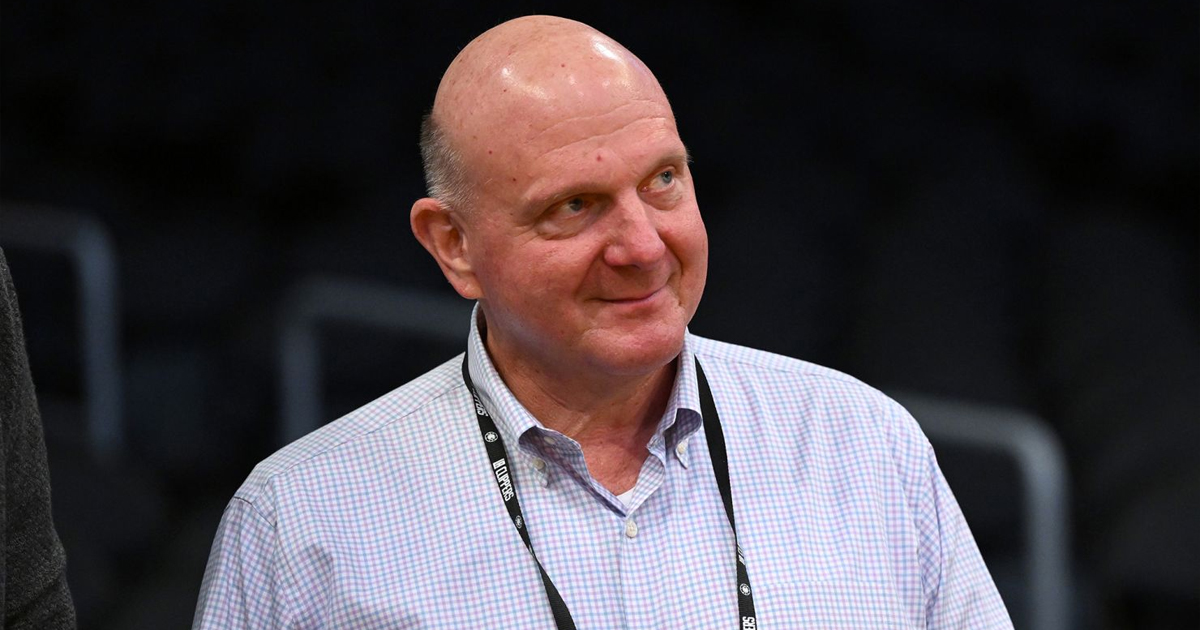
Steve Ballmer is the former CEO of Microsoft. He is the current owner of the Los Angeles Clippers. He rates tenth with a net cost of $123 billion. Ballmer’s wealth has grown from his investments. It’s also grown from his time at Microsoft.
Post-Microsoft Ventures: After trekking down as CEO, Ballmer focused on further asset possibilities. In 2014, he bought the Los Angeles Clippers NBA team for $2 billion. He’s led the team. He did it by making big investments in technology and developing players. This has increased the franchise’s value. Ballmer’s portfolio includes big investments in tech startups and enterprises. They’ve grown a lot under his guidance (Statista) (Forbes India).
Ballmer has accumulated wealth. His fortune stems from his large stake in Microsoft. The company’s stock has seen great growth. This is due to its continuous innovation and strong finances. This is especially true in cloud computing and software services. Ballmer’s diversified investments have also contributed to his rising net worth. As of 2024, Ballmer’s net worth has surged. It’s made him the richest person in the world.
Steve Ballmer and his wife, Connie, commit to philanthropy and making an impact. The Ballmer Group gives them. The group aims to improve economic mobility for U.S. children and families. Their initiatives support education, housing, and healthcare reforms. Ballmer uses data to guide his philanthropy. He stresses the measurable impact and lasting solutions.
Conclusion: Steve Ballmer was Microsoft’s first business manager. He later became the world’s richest man. This shows his great leadership and business skills. His influence reaches beyond tech. He has made big contributions to sports and charity. It’s transformed Microsoft. He also works to foster social change.
Observations and Trends
Tech entrepreneurs dominate the top ranks. This shows the sector’s key role in creating global wealth. Innovations in software, social media, electric vehicles, and space exploration are driving big profits from these innovations. Leaders in luxury goods and investment industries also keep strong positions. They do this through strategic expansions and market influence.
The Future of Wealth
As we look ahead, it’s going to be interesting to see how these figures adapt. They’re going to face new challenges and opportunities. Technology is always changing. So are consumer habits. Global economic policies will impact them. These policies will shape the billionaires’ fortunes.
Key Insights
Tech moguls dominate the top ranks. This shows the sector’s big impact on global wealth. The new software has been profitable. So have social media, electric vehicles, and space exploration. Also, leaders in luxury goods and investment industries continue to hold their ground. They do so through smart expansions and diversification.
These individuals have accumulated wealth. It shows their business skills. It also shows their ability to adapt and innovate. Economies undergo a swift transformation. As we’ve moved forward, it will be intriguing to see how these figures keep their positions. And who might emerge as new contenders in a world of extreme wealth?
Conclusion
Bernard Arnault’s peak made him the world’s richest man. It’s a tale of strategy and skill. It’s also a story of unwavering dedication to excellence. He transformed LVMH into a global powerhouse. He also redefined the luxury goods industry. His ability to build and nurture a vast luxury empire did this. Arnault continues to lead LVMH to new heights. His legacy as a visionary and a luxury champion will endure for generations to come.
Mark Zuckerberg rose to become the world’s wealthiest man. His story is one of creation, persistence, and creative oversight. He found Facebook in a college dorm room. Now, he leads Meta’s shift into the metaverse. Zuckerberg’s impact on tech and society is big. He’s continued to push boundaries. Zuckerberg’s legacy as a digital age icon will endure for generations.
Bill Gates dropped out of college. He became the richest man in the world. His story is one of innovation, vision, and dedication. He has a big impact on technology and society. His philanthropic efforts aim to create a better future for all. Gates was a tech pioneer and humanitarian. His legacy continues to inspire and drive progress.
Buffett is also famous for his philanthropic efforts. He focuses on health, education, and deprivation reduction. He does this through the Susan Thompson Buffett Foundation and other initiatives.
Warren Buffett started as a young investor. His journey is a testament to his unmatched investment skills and business sense. His influence is beyond finance. Buffett, we’ve been savvy investors. He’s also a generous philanthropist. His legacy inspires generations.

As a versatile and creative content writer, I craft compelling narratives that captivate and engage readers. With a keen eye for detail and a passion for storytelling, I transform ideas into impactful content. Clients choose me for my ability to understand their vision, deliver high-quality work on time, and provide a unique voice that resonates with their audience.
